Nurturing Nature to Tame Nature: CSIR-CRI Introduces Crop Officers and Farmers to Bioagents in the Battle against Fall Armyworms

The CSIR-Crops Research Institute (CRI) organised a field day for agricultural extension agents (AEA’s) and crop officers from fifteen districts in Ashanti Region at the CSIR-CRI Kwadaso station. The purpose of the field day was to acquaint stakeholders in agricultural extension with a sustainable strategy for managing the fall armyworm by introducing them to bioagents.
History and effects of Fall Armyworm
First identified in 2016 in the Yilo Krobo district of the Eastern Region, the fall armyworm persists in causing devastation to many Ghanaian farmers’ fields. The fall armyworm’s insatiable appetite has resulted in significant crop losses, creating economic hardships for farmers and endangering food security in Ghana. Over the years, the infestation has necessitated increased expenditure on synthetic insecticides to manage the pest, contributing to higher production costs. Beyond the economic impact, the reliance on chemical control methods to control the fall armyworms has raised many environmental and health concerns.
Ejura and Kwadaso Field Days
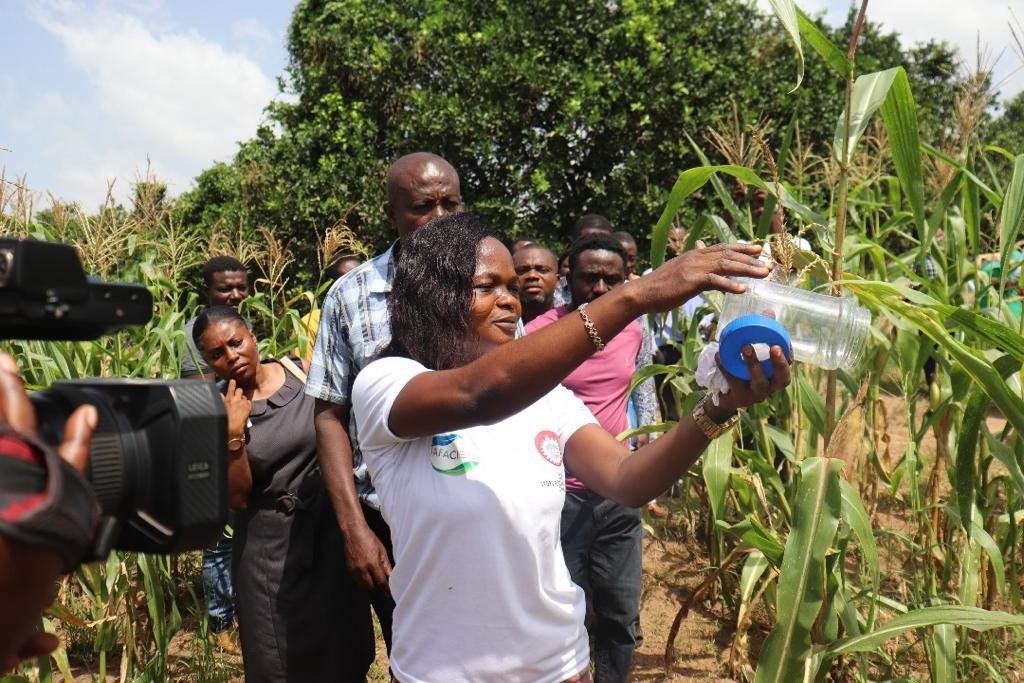
Recognizing all these effects, the CSIR-CRI saw it necessary to engage farmers in the process of utilising bioagents to fight against the fall armyworm. Subsequently, on Tuesday 28th November 2023, a field day was organised for farmers at Teacherkrom, Ejura. During the field day, Dr. Yaw Danso, a Senior Research Scientist at CSIR-CRI, expressed that prolonged pesticide use has proven to have undesirable consequences in the battle against the fall armyworm. He stated, “Our goal is to limit the usage of pesticides. Every insect has its master, and we have conducted research to identify biocontrol agents capable of managing the fall armyworm. Hence, we have invited you (farmers) as crucial stakeholders to witness the demonstration fields we have established using the bioagents we have developed.”
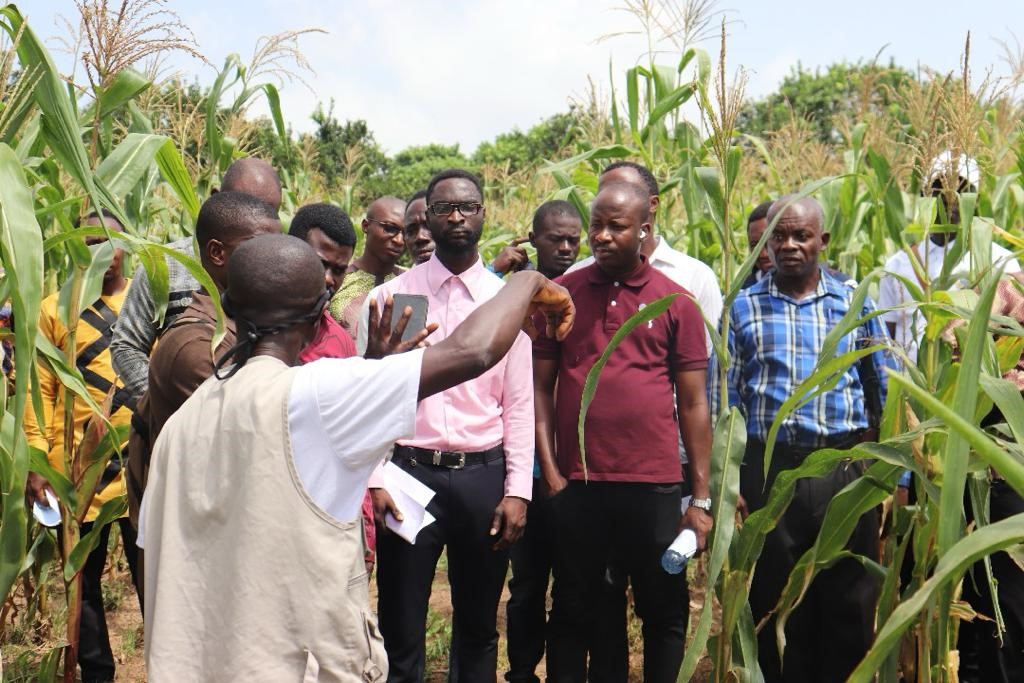
A similar exercise was held at Kwadaso where a Senior Research Scientist and entomologist at the CSIR-CRI, Dr. Kofi Frimpong-Anin stated that the Institute had undertaken several measures to address the fall armyworm outbreak. He added that with support from the Korea-Africa Food and Agricultural Initiative (KAFACI), CSIR-CRI has dedicated the past five years to researching an integrated pest management (IPM) approach for controlling the fall armyworm. “The emphasis has been on adopting a ‘nature to tame nature’ strategy, utilising biological agents to control the fall armyworm population”, Dr. Anin indicated. According to him, three proven effective bioagents in the laboratory and field: Parasitoid, Entomopathogenic fungi, and Entomopathogenic nematodes are being actively utilised in this pursuit and have been found to be effective, safe, and environmentally friendly.
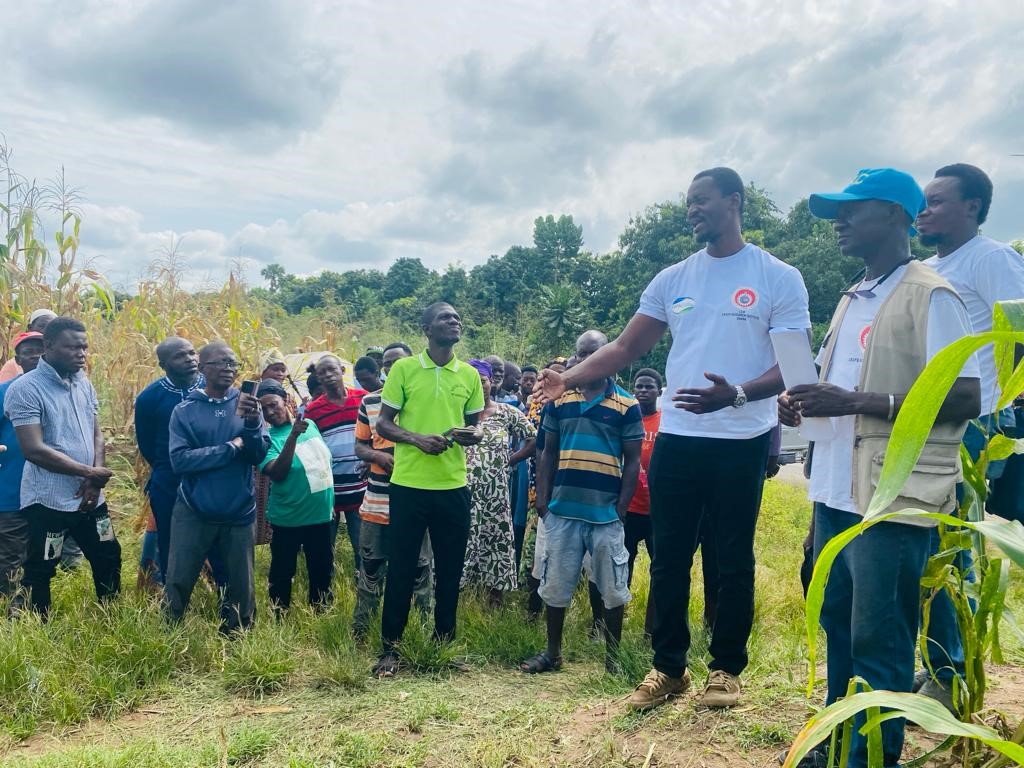
Farmers’ Woes with Fall Armyworms
The current situation on the ground is that farmers are solely reliant on one method for controlling the fall armyworm, thus, the use of pesticides like “Attack” and “Lamber”. Well, can they be faulted for this reliance, considering it’s the only method they are familiar with? In conversation with Christiana Nasaa, a farmer from Teacherkrom, she lamented the severe infestation of armyworms in her field back in 2018, resulting in the complete loss of her maize harvest. Since then, she has encountered multiple instances of armyworm infestations, and her only resort, despite recognizing its adverse effects and harmful nature, has been the use of pesticides.
Numerous farmers, much like Madam Christiana, express a desire for alternative fall armyworm control methods but found themselves constrained by the persistent use of pesticides. CSIR’s shared objective is to develop a comprehensive integrated pest management package. Ultimately, CSIR-CRI aims to encourage farmers to explore diverse control methods, prioritising Biological and Cultural approaches, while considering chemical control as a last resort.
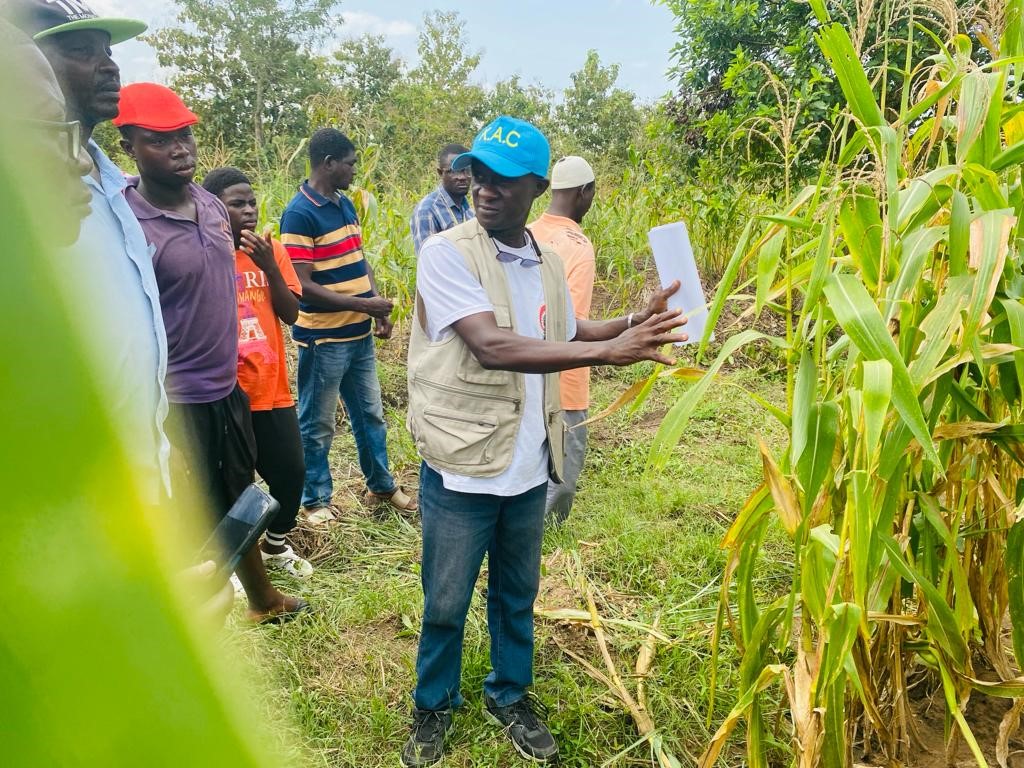
Way Forward
Mr. Fuseini Seidu, a farmer, shared his sincere hope with the scientists. He stated, “Our maize fields have been consistently plagued by the fall armyworms. They devour our produce and cause significant damage to the limited yield we manage to salvage after their onslaught. The financial burden of relying solely on pesticides is disheartening. However, witnessing today’s field day and the introduction of bioagents provides a glimmer of hope in our battle against the fall armyworms. Looking at the different demonstration plots, it is evident that the plots with biocontrol methods were not attacked by fall armyworms. We are grateful to the scientists for introducing these new biocontrol methods, as all the farmers present are highly interested and eager to implement them in our own fields.”
He went on to motivate the scientists, urging them to persist in their research efforts and expand the reach of this emerging technology. The emphasis was on the need to upscale and make the bioagents accessible to farmers by releasing it into the system.
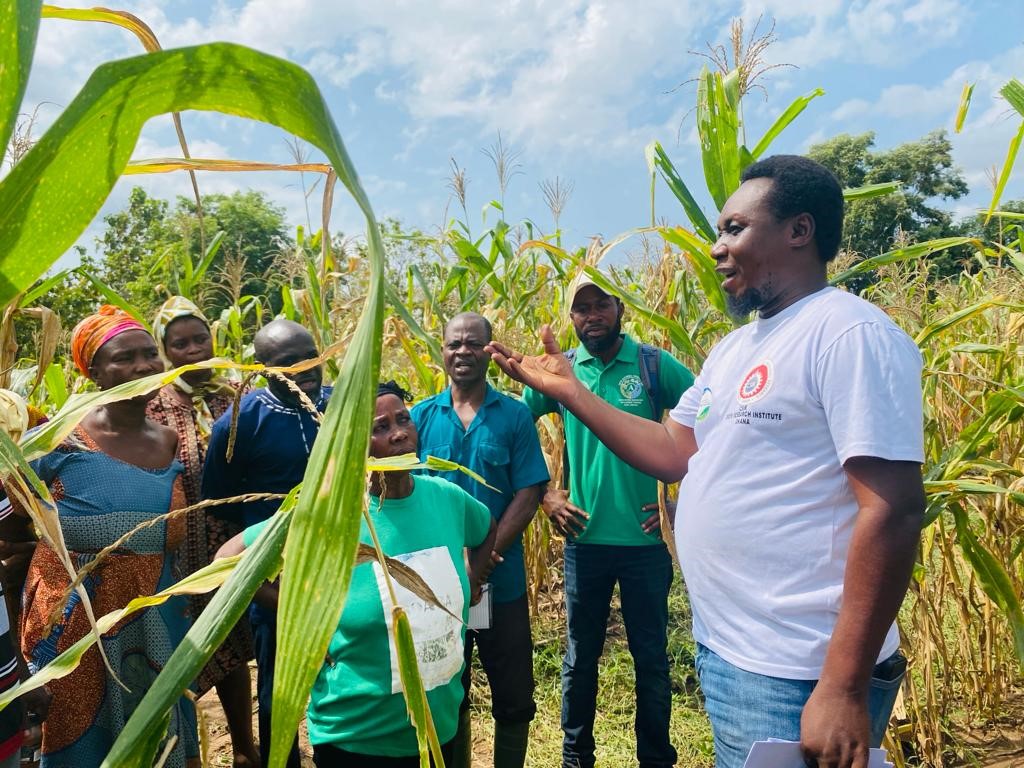
CSIR-CRI scientists will continue interacting with farmers and other agricultural stakeholders to witness the variations in harvest outcomes from the demonstration plots. Dr. Yaw Danso conveyed in his closing remarks that, CSIR-CRI is diligently researching the packaging of these bioagents since the packaging will facilitate easy application and accessibility. He further urged farmers to make themselves available anytime they are called upon for future deliberations.
Ongoing research into bioagents remains a steadfast commitment at CSIR-CRI. CSIR-CRI will not rest unless every last fall armyworm packs its bag and leaves town. Our dedication persists until we come to a point where every Ghanaian farmer’s field flourishes without the threat of fall armyworm infestations.
Authors: Linda Agyeman, Patricia Konadu Mensah, Enoch Bobie Agyemang, Dennis Gyasi Boakye
